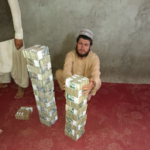Nepal’s Rastriya Swatantra Party (RSP) will decide on Friday whether or not to join the government, according to a senior party leader. The decision comes after RSP Chairman Ravi Lamichhane met with Prime Minister Pushpa Kamal Dahal ‘Prachanda’ on Sunday. The RSP is the fourth largest party in Nepal’s Parliament, with 22 seats in the lower house. The party won two out of three seats in the recent by-polls. A central committee meeting was held on Monday, where RSP General Secretary and Spokesperson Mukul Dhakal announced that a meeting has been called for Friday to discuss the party’s potential involvement in the government.
The RSP’s decision could have significant implications for the current government, as it could potentially give them a majority in the lower house. The ruling coalition currently holds 120 out of 275 seats in the lower house, and the addition of the RSP’s 22 seats would bring them to 142 seats.
The RSP has not yet indicated which way they will vote on Friday, but they have been critical of the current government in the past. In December 2021, the party withdrew its support for the government over a disagreement about the appointment of a governor in the Karnali province.
The RSP was formed in 2016 after a merger between the Rastriya Prajatantra Party and the Nepal Prajatantra Party. The party’s ideology is based on the principles of democracy, nationalism, and liberalism.
The Nepalese government has been facing several challenges in recent months, including protests by opposition parties and civil society groups over allegations of corruption and mismanagement. The government has also been criticized for its handling of the COVID-19 pandemic and the slow pace of reconstruction after the 2015 earthquake.
The RSP’s decision on Friday could potentially help the government address some of these challenges, but it remains to be seen how the party will vote. The outcome of the meeting could have a significant impact on Nepal’s political landscape, and it is likely to be closely watched by both domestic and international observers.




